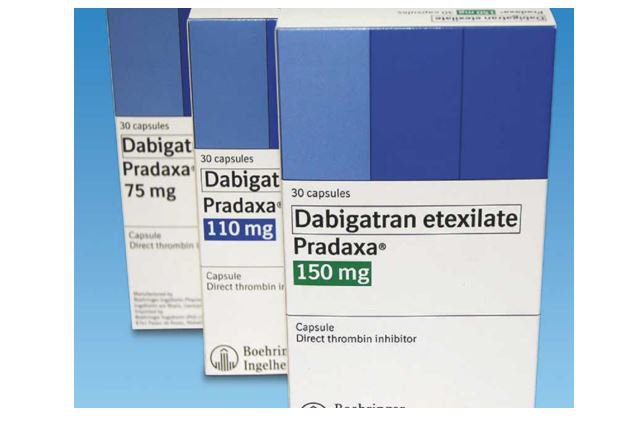Dabigatran is a medication commonly prescribed as an anticoagulant (blood thinner). Here’s information about its uses, benefits, common symptoms, and potential side effects: Dabigatran Tablet Uses Benefits and Symptoms Side Effects
Uses and Benefits of Dabigatran:
- Prevention of Stroke and Systemic Embolism in Atrial Fibrillation: Dabigatran is often prescribed to individuals with non-valvular atrial fibrillation (a type of irregular heartbeat) to reduce the risk of stroke and systemic embolism.
- Treatment and Prevention of Venous Thromboembolism: Dabigatran is used for the treatment and prevention of deep vein thrombosis (DVT) and pulmonary embolism (PE). It helps prevent the formation and growth of blood clots in the veins.
- Prevention of Recurrent DVT and PE: Dabigatran may be prescribed to individuals who have previously experienced a DVT or PE to reduce the risk of recurrence after initial treatment.
- Post-Orthopedic Surgery Thromboprophylaxis: Dabigatran can be used for thromboprophylaxis (prevention of blood clots) in individuals who have undergone hip or knee replacement surgery.
Common Symptoms and Side Effects of Dabigatran:
- Bleeding: One of the most significant side effects of dabigatran is an increased risk of bleeding. This can manifest as bleeding gums, nosebleeds, bruising, prolonged bleeding from cuts, or blood in urine or stool. It’s important to promptly report any signs of bleeding to your healthcare provider.
- Gastrointestinal Symptoms: Some individuals may experience gastrointestinal symptoms such as stomach pain, indigestion, or nausea while taking dabigatran.
- Allergic Reactions: In rare cases, dabigatran can cause allergic reactions characterized by symptoms such as rash, itching, swelling, or difficulty breathing. Seek immediate medical attention if you experience any signs of an allergic reaction.
- Increased Liver Enzymes: Dabigatran can cause elevation of liver enzymes, which can be detected through blood tests. Regular monitoring of liver function is important during treatment.
- Anemia: Dabigatran may cause a decrease in hemoglobin levels, leading to anemia. Regular blood tests may be conducted to monitor your hemoglobin levels.
- Fatigue: Some individuals may experience fatigue or weakness as a side effect of dabigatran.
- Gastritis and Gastric Ulcers: Dabigatran can increase the risk of gastritis (inflammation of the stomach lining) and gastric ulcers, especially at higher doses or with prolonged use. Symptoms may include stomach pain, indigestion, or black, tarry stools.
It’s important to take
dabigatran as prescribed by your healthcare professional and follow their instructions regarding the dosage and frequency of administration. Inform your healthcare provider about any pre-existing medical conditions, medications, or supplements you are taking to ensure the appropriate use of dabigatran.
If you have any concerns or experience
troubling side effects while taking dabigatran, consult with your healthcare provider for further evaluation and guidance. Regular monitoring and follow-up visits with your healthcare provider are typically recommended during dabigatran treatment.
Dabigatran Tablet Uses Benefits and Symptoms Side Effects Dabigatran Tablet in hindi Dabigatran Tablet in hindi






